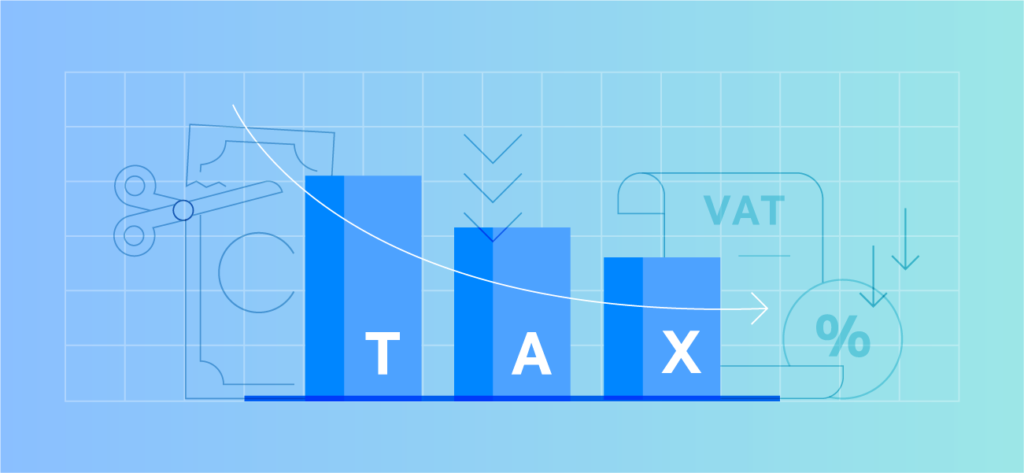Are you a small business owner looking to navigate the complex world of tax deductions? Look no further! In this beginner’s guide, we’ll walk you through everything you need to know to maximize your deductions and minimize your tax liability. Whether you’re a solopreneur or have a team of employees, understanding which expenses are deductible can save you big bucks at tax time.
Importance of Understanding Small Business Tax Deductions
As a small business owner, understanding the importance of tax deductions is crucial. Deductions allow you to reduce your taxable income, which in turn lowers your overall tax liability. By maximizing your deductions, you can keep more money in your pocket and reinvest it back into your business.
One of the key benefits of deductions is that they help level the playing field for small businesses. They provide an opportunity for you to offset the costs of running your business against your income, just like larger corporations do.
Moreover, taking advantage of all the deductions you’re entitled to can help you maintain a healthy cash flow throughout the year. This extra money can be reinvested in your business, used to expand your operations, or saved for future expenses.
Understanding the ins and outs of small business tax deductions is not only financially beneficial but also essential for staying compliant with the IRS. Failing to claim legitimate deductions could lead to penalties or audits, both of which can be time-consuming and costly. Now, let’s dive into some of the most common small business tax deductions.
Common Small Business Tax Deductions
Home Office Deduction
If you run your small business from your home, you may be eligible for the home office deduction. This deduction allows you to deduct a portion of your housing expenses, such as rent or mortgage interest, utilities, and insurance, based on the square footage of your home office.
To qualify for the home office deduction, your home office must be used exclusively for business purposes. It should be your principal place of business or a space where you meet clients or customers regularly. Keep in mind that the IRS has strict guidelines for claiming this deduction, so it’s important to understand the rules and keep detailed records.
Vehicle Expenses Deduction
If you use a vehicle for business purposes, you may be able to deduct the expenses associated with its use. This includes not only the cost of fuel and maintenance but also insurance premiums, lease payments, and depreciation.
To claim the vehicle expenses deduction, you must keep accurate records of your business mileage and separate it from personal use. There are two methods for calculating this deduction: the standard mileage rate method and the actual expense method. The standard mileage rate is a fixed amount per mile, while the actual expense method allows you to deduct the actual costs incurred.
Travel and Entertainment Deduction
If your business requires you to travel or entertain clients, you can deduct these expenses as well. This includes airfare, hotel accommodations, meals, and entertainment expenses directly related to your business activities.
To claim the travel and entertainment deduction, you must be able to demonstrate that these expenses were necessary and ordinary for your business. It’s essential to keep detailed records, including receipts, invoices, and a log of the business purpose for each expense.
Health Insurance Deduction
Small business owners who provide health insurance coverage for themselves and their employees may be eligible for a deduction. The deductible amount includes not only the premiums paid but also other medical expenses, such as dental and vision care.
To claim the health insurance deduction, you must meet certain criteria set by the IRS. For example, you must be self-employed or have a small number of employees, and the insurance plan must be established under your business’s name.
Retirement Contributions Deduction
As a small business owner, you have several retirement plan options that can help you save for the future while reducing your taxable income. Contributions to retirement plans, such as a Simplified Employee Pension (SEP) IRA or a solo 401(k), are tax-deductible.
By taking advantage of the retirement contributions deduction, you can save for retirement while lowering your current-year tax liability. It’s important to consult with a financial advisor or tax professional to determine the best retirement plan for your specific needs.
Advertising and Marketing Deduction
Advertising and marketing are essential for growing your small business, and luckily, these expenses are generally tax-deductible. This includes costs associated with online advertising, print advertising, social media marketing, and any other promotional activities.
To claim the advertising and marketing deduction, you must be able to demonstrate that these expenses were directly related to your business and necessary for its growth. Keep all receipts and invoices, and be prepared to explain the business purpose behind each expense.
Hiring and Payroll Deduction
Expanding your team and hiring employees can also come with tax benefits. The costs associated with hiring, training, and compensating employees, including salaries, wages, and benefits, are generally deductible.
To claim the hiring and payroll deduction, you must ensure that the expenses are ordinary and necessary for your business. Keep accurate records of all employee-related expenses, including payroll records, contracts, and invoices.
Conclusion: Maximizing Small Business Tax Deductions
Navigating the world of small business tax deductions can be overwhelming, but with the right knowledge and strategies, you can maximize your deductions and minimize your tax liability. By understanding the importance of deductions, organizing your records, and staying in compliance with IRS guidelines, you can confidently claim all the deductions you’re entitled to.
Remember, it’s always a good idea to consult with a tax professional or accountant to ensure you’re taking advantage of all available deductions and staying compliant with current regulations. With careful planning and attention to detail, you can unlock the secrets to maximizing your small business tax deductions and keep more money in your pocket. Start implementing these tips today and watch your business thrive!


